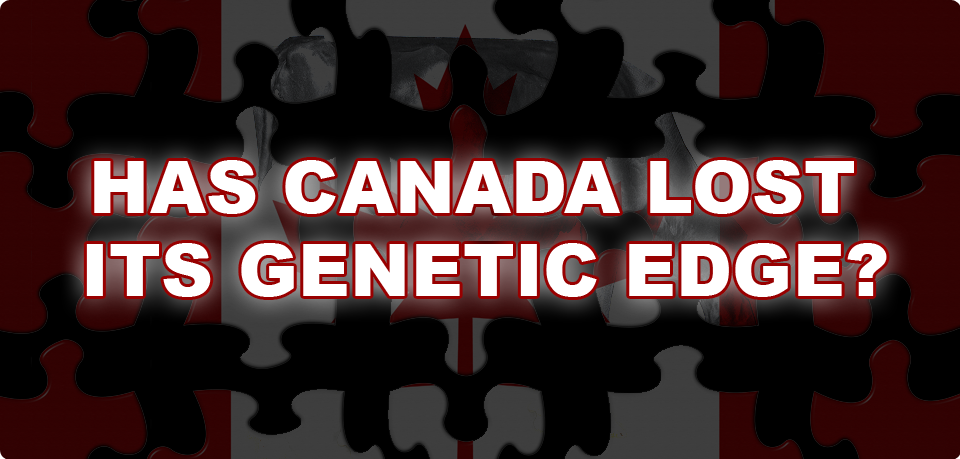For many years Canada has considered itself to be at the center of the Holstein universe. But a closer look at the top ranking lists reveals that the world is changing. The following are some interesting stats about who is dominating the top lists:
- One of the top five LPI sires is sired by a CAN bull
- 5/10 are CAN bred and proven
- 19/50 top LPI sires are CAN sired.
- 1/50 of the top TPI sires are CAN sired
- The # 1 CAN proven and bred sire (Topside) only ranks #42 for LPI worldwide.
The world has changed. Previously most world markets came to Canada to buy their seed stock. Today the proof is in the pudding. Countries that began by using our genetics are getting results that are as good or better than ours are.
Not only has there been a shift in the top sires from around the world reside, it is interesting to note that the following countries all have sires higher on the MACE LPI list than the top Canadian bred and proven bull
- USA x 25
- GREAT BRITAIN x3
- GERMANY x2
- NETHERLANDS x2
- JAPAN x2
- ITALY x 1
- DENMARK X 1
- HUNGARY x 1
- FRANCE x1
While it’s understandable to see the US dominating this list, it’s also interesting to note the countries like Great Britain, Japan, Denmark, and Holland all have multiple sires that rank higher than Canada on the MACE LPI list.
In 21st Century cattle breeding, genomics is increasing the accuracy of MACE conversions and the global marketplace has the tools to share and compare the results accurately. Canadian breeders can no longer discredit top international sires as not being good enough to use in their breeding programs. Planet’s recent domination of the top LPI cow list and the fact that only five of the top fifty cows are Canadian sired, demonstrates that even Canadians are using international bulls.
So what does this mean? Does it mean that Canadian breeders are not as good as the ones in other countries? I think it’s more evidence that much like other industries the world has become flat. (Don’t tell Christopher Columbus). In the same way that the internet and global sourcing of products have changed other industries, the internet and Genomics have changed the Holstein breeding industry.
It no longer matters weather you are looking at TPI, LPI PLI or net merit you no longer need to look at country of origin but rather a world list. With top genetics coming from many countries, it’s no longer about what countries dominate the list but rather what breeding programs produce the chart toppers. In the same way that companies like Apple, Microsoft and Wal-Mart have expanded, many herds or rather breeding programs will become bigger than their country of origin. They will become global entities. Look at how Semex is no longer just Canadian genetics, or ABS is no longer just US. They are global organizations with global programs.
Finally, , look at the way herds like Morsan, Gillette, and De-Su among others, now have global sales representatives and are multinational breeding organizations. More and more herds are getting dedicated marketing and sales staff whose sole job is the international promotion of their genetics.
The world is changing at a very rapid pace, and if you try to rest on your laurels too long, the world will simply pass you buy. Now is not the time to say, “Hey we are Canada and, therefore, we are amazing!” Instead it’s time to say, “We are Canada and look how we are using our know-how to take breeding to the next level, no matter what the source or country of origin of our Holstein Genetics” Our systems of evaluation are world class. We can trust them to give us the information Canadian breeders need to be leaders of the pack.


















Leave a Reply
You must be logged in to post a comment.